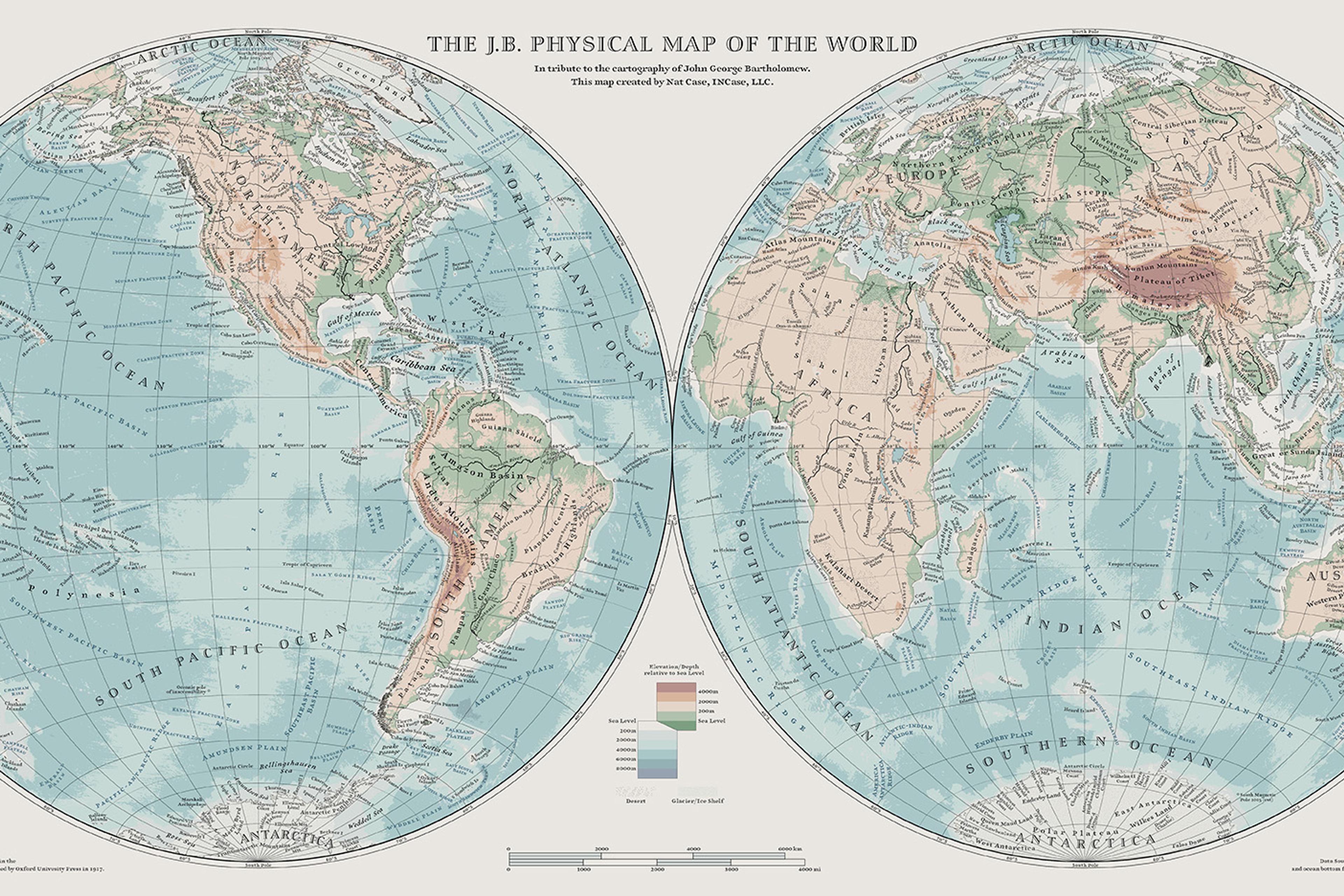Greed has long been cast in a negative light, seen as a vice that leads to exploitation and decay. For centuries, Christians have listed it among the ‘seven deadly sins’. In contemporary life, greed is associated with corporate scandals that cause devastating losses for employees and communities, and research has linked it to corruption and unethical behaviour. These and other negative portrayals of greed mean that few of us would want to be labelled as ‘greedy’. Whether greed is bad for the greedy person, however, is a different question. One need only look at the attitudes of some famous people (including a recent US president), or to popular culture (eg, Gordon Gekko’s memorable claim that ‘Greed … is good’), to encounter the idea that greed – sinful or not – has plenty of benefits.
Greed is an insatiable desire for more. More money. More goods, whether it’s cars, jewellery, or Pokémon cards. Most researchers who study greed would also say it includes the desire for more nonmaterial ‘possessions’, such as status, friends or sexual opportunities. There is some discussion among academics about whether greed mostly concerns the desire to acquire, or also the desire to keep what one has. Despite such definitional debates, there is agreement that insatiability is a core feature.
Although I would argue that all people are greedy sometimes (remember the massive stockpiling of toilet paper during the COVID-19 pandemic), some people are more likely than others to experience greed and to be motivated by it. Research shows that greed – gauged by people’s level of agreement with statements like ‘I always want more’ and ‘It doesn’t matter how much I have, I’m never completely satisfied’ – is a normally distributed trait. This means that most people are intermediately greedy, while smaller numbers rate very low or very high in greed. It also turns out that these individual differences are relatively stable over time.
Greed is sometimes praised as a source of ambition and a motor for economic growth. As a psychologist, I am especially interested in the effects of greed on the individual level: does it make the greedy financially better off, and does this potential material benefit come at psychological and emotional cost? Recent work by my colleagues and me, and that of other researchers, helps provide a clearer, more evidence-based account of whether greed is truly good for the greedy.
It’s easy to see how, by motivating a person to put in the time and effort needed to achieve their goals, greed could lead to increased productivity, with the attendant personal and professional rewards. Indeed, some research suggests that greed is associated with a greater ‘productivity orientation’: greedy people might be more driven to make progress and reach accomplishments.
One of the most obvious benefits you might expect is that greedy people earn more money. The evidence on this has actually been somewhat mixed. Some research has found no relationship between greed and income. Yet a survey of more than 120,000 Dutch employees found that greedier people more often work in fields such as extractive industries, real estate, banking and insurance, which are generally high-wage jobs, and less in fields such as education, healthcare and government. In a more recent study, our team found that, across the whole research sample, greed was positively correlated with household income, though not with personal income. However, looking only at those who received income from employment or self-employment (not from other sources, such as pensions), we did find a relationship between greed and income. So, it seems that greedier people who worked tended to earn more.
Greed might be a trait that has been favoured throughout evolution
Greedier individuals were also observed working harder in a laboratory study – and earning more rewards – than their less greedy counterparts. They often even overearned, meaning that they earned more than they could consume in the limited time given to them by the experimenter. Overall, in the financial sense, greed may indeed be good for many greedy people.
Some evolutionary theorists would also make the case that greed has benefits: in unpredictable environments with scarce resources, individuals who acquired as much as possible might have had a survival advantage, and so greed might be a trait that has been favoured throughout evolution. Looking at some theoretically related outcomes, our team found that greed was associated with the number of sexual partners people reported having in their lifetime – which, at least in the light of evolution, is something positive, as (in theory) it increases the chances of having offspring.
That being said, greedier people also reported having shorter romantic relationships and smaller families, the latter of which would be considered an evolutionary disadvantage. Of course, having fewer offspring is not necessarily bad for greedy individuals in a more general sense. They might have their own reasons to have fewer children, perhaps because they have personal aims that they think would be harder to achieve.
So there are apparent positives related to greed – in material and possibly in sexual terms – but the trait looks a lot less appealing when we consider the psychological downsides. Time after time, especially since the surge in greed research following the 2008 financial crisis, researchers have found that being greedy is related to being less satisfied with life and lower wellbeing.
To date, it is not fully clear why this is the case. It could be because greedy people are constantly dissatisfied with what they have and are endlessly pursuing more – intrinsic properties of greed. It could also be because they frequently compare themselves with others who are better off, and they feel more envy. A greedy person who often has an urge to buy a new car, for instance, even when the old car is working just fine, might be especially likely to feel depressed and unsuccessful when his neighbour enters the driveway with the latest luxury SUV. Research has also connected greed with lower emotional stability and self-esteem, and with less trust in others.
Extreme greed could promote mental dysfunction, given the constant dissatisfaction involved
As mentioned, greedier people have reported shorter romantic relationships and smaller families, and having good social relationships is crucial to wellbeing – even more so than having a good income. Greedy people might tend to be bad company, which could help explain these shorter romantic relationships. Researchers have observed that greed is associated with egoism and a sense of entitlement, lower empathy, less concern for others, and relatedly, the trait of psychopathy. As a result, relationships with people who are highly greedy might drift apart relatively early. The greedy person might, for instance, pay too little attention to the distress of a partner and fail to offer the emotional support needed, as they are preoccupied by their own desires. Another reason for shorter relationships may be that greedy people have a tendency to objectify their relationships, treating them as a possession or a means to an end, and perhaps replacing them once they lose their perceived value.
While greed is not part of the Diagnostic and Statistical Manual of Mental Disorders (5th ed, 2013), some disorders, such as narcissistic personality disorder, can involve greedy behaviours. People with that condition often exhibit an inflated sense of self-importance and an insatiable desire for admiration and material success. This is not to say that being greedy is always problematic or necessarily leads to severe psychological problems. It seems plausible, though, that extreme forms of greed could promote mental dysfunction, given the constant dissatisfaction involved and its psychological and social consequences. Some authors have even drawn a parallel between greed and addiction: like someone who’s motivated by a strong desire for the object of their addiction, a greedy individual is motivated by a strong desire to obtain the object of their greed. This acquisitive pursuit might lead to a reward response that is powerful, yet ultimately temporary and unsatisfying.
Even if greed does drive personal ambition, makes someone financially better off, and might result in some advantages from an evolutionary perspective, it also seems to have potentially steep costs for the greedy individual. So then, does greed pay in the end? It depends on how you define success. Perhaps a little bit of greed will give you a boost in life, if the risks can be contained. However, excessive greed can spiral out of control, leading to a relentless pursuit of money or other rewards that overshadows other important aspects of life, such as emotional wellbeing, meaningful connections with others, and personal integrity. The best course may be to emulate the ambition that some greedy people exhibit, without treating the insatiable desire for more as something good in itself – and to recognise that success, in a broader sense, encompasses much more than material gain.








